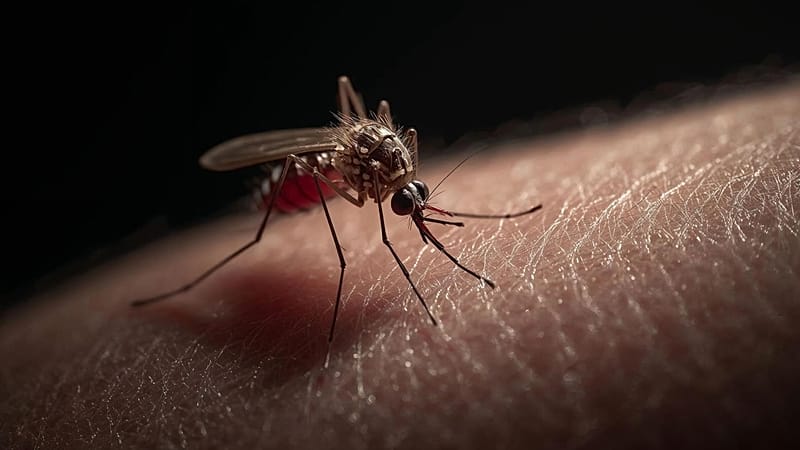Scientists dream of beating malaria by editing disease-carrying mosquitoes' DNA. Could it work?

Scientists have long dreamed of quashing mosquito-borne diseases such as malaria, which alone kills more than 608,000 people per year.
Their inventions – notably insecticide-treated bed nets – have slashed child mortality in parts of Africa hit hard by these diseases. They spread when people are bitten by infected mosquitoes or other insects.
But as far back as the 1960s, a group of scientists started asking another question altogether: Rather than solely focusing on killing parasite-carrying bugs, what if you could simply prevent them from spreading disease?
Since then, private labs, universities, and government groups have invested hundreds of millions of euros in experiments to alter mosquitoes’ DNA. Some gene modifications make mosquitoes sterile, while others prevent their offspring from reaching adulthood or make it harder for disease-carrying parasites to infect the bugs.
“The concept of actually changing the genome of the mosquito to make it not susceptible to parasites is a complete paradigm shift,” said Jan Kolaczinski, a malaria and vector control expert at Unitaid, a group that works to improve medicines access in lower-income countries.
Early tests with genetically modified mosquitoes in Brazil, Malaysia, the United States, and elsewhere have been encouraging, helping to shrink the mosquito populations there. Scientists also released modified mosquitoes in Burkina Faso in 2019 for research purposes.
But some types of gene-editing are controversial, with environmental groups calling for years to ban the release of mosquitoes carrying gene drives, which make it more likely that the bugs will pass along modified genes to their offspring.
In a new report, that is exactly the gene-editing method that Unitaid, which is hosted by the World Health Organization (WHO), argues is the most promising way to end the scourge of mosquito-borne diseases.
In the self-sustaining gene drive approach, changes to mosquitoes’ genes are passed to 100 per cent of their offspring, meaning they could spread through the population until they entirely replace disease-carrying mosquitoes, Unitaid said.
In the best case scenario, that means a single release of the modified bugs into the wild could eventually render malaria obsolete in regions where it is currently endemic, including much of sub-Saharan Africa.
That would “allow us to control malaria at a scale that is unprecedented, because the mosquito would almost control itself,” Kolaczinski said.
“This is something we consider as the Holy Grail”.
Using other gene-editing techniques, the DNA changes would disappear within a few generations, meaning scientists would have to repeatedly release the edited bugs. That makes these methods more expensive over time, the report said.
However, the self-sustaining gene drive approach comes with risks and limitations of its own. Permanently changing the genetic makeup of a mosquito species could have unintended consequences for the ecosystem that are difficult to predict.
Scientists are also testing other, non-genetic ways to prevent mosquitoes from spreading disease, for example by infecting mosquito eggs with the Wolbachia bacteria, which affects their ability to reproduce and spread dengue, chikungunya, and other diseases.
Researchers are still exploring multiple strategies to control mosquitoes, Kolaczinski said, because different situations could require different methods. For example, one approach may be more useful to target certain parasites, work better in urban or rural areas, or be more practical based on logistics or funding.
There’s also the risk that technologies that seem to work in experimental settings go on to fail in the real world.
“You wouldn't want to put all your eggs in one basket,” Kolaczinski said.
Even if the science is sorted out, it could be challenging to secure political, financial, and public support for genetic modification. Additionally, massive cuts to global health funding this year are threatening the existing fight against malaria and other vector-borne diseases.
But Kolaczinski said this technology could still be the scientific community’s best shot to meaningfully alter the course of endemic diseases such as malaria, which infected some 263 million people in 2023, WHO data shows.
“I don't really see any other means to get to zero malaria in malaria-endemic areas without a truly game-changing tool,” he said. “And out of the possible options, I would say that gene-drive mosquitoes are probably the most promising”.
Updated Nov. 17: This story has been updated with additional details about tests in Burkina Faso.
Today

